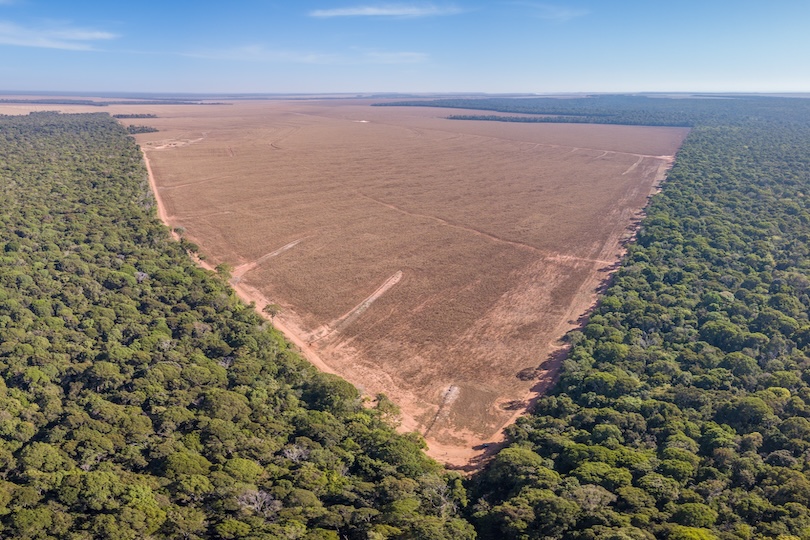The European Union’s Products Free from Deforestation Regulation (EUDR), which officially comes into effect in June 2023, is one of the main tools used by the European Union (EU) to address the nature-related impacts of its agricultural imports. As part of the EU Green Deal initiative, the EUDR aims to address deforestation and nature degradation involved in the value chains of products entering the European Common Market. Specifically, the measure targets the cocoa, coffee, soy, palm oil, timber, rubber and cattle value chains due to their impact on critically endangered ecosystems around the world. In fact, the soy and cattle value chains have been identified as the biggest drivers of deforestation in the Amazon, while palm oil extraction is irreversibly linked to land degradation in peatlands in Indonesia and Malaysia. Against this background, the EU’s Deforestation Regulation has been highly praised by environmentalists and civil society organizations concerned about the environment as an important step in the right direction. By banning these products from European commodity markets, the EU hopes to reduce its deforestation footprint.
While the EUDR has been warmly welcomed by some, it has also raised concerns among others. The measure targets products linked to deforestation in ecosystems including peatlands in Malaysia and Indonesia, the Amazon rainforest in Brazil and the Grand Chaco Plain in Argentina and Paraguay, raising concerns among agriculturists and government officials in those countries. Criticisms of the measure range from accusations of simple economic protectionism, favoring European producers over foreign ones, to denouncing it as a form of green colonialism.
In essence, criticism of the measure as green colonialism refers to the imposition of Western environmental standards and policies on countries in the Global South, often without adequate consideration of local circumstances or consultation with affected communities. After the EUDR came into effect on June 29, 2023, it was severely criticized by representatives of so-called “high-risk countries for deforestation” such as Brazil, Malaysia, Indonesia and Argentina. An open letter to EU officials, signed by 17 producing countries (including those previously mentioned), expressed multiple concerns about the policy. Among them, the letter urges the EU leadership to “strengthen engagement with producing countries and develop clear and detailed implementation bills and guidelines for the EUDR, including the implementation of differentiated compliance and due diligence systems for goods and products from small farmers in producing countries.”
Additionally, in March this year, the World Trade Organization (WTO) ruled against the EU after Malaysia filed a dispute over restrictions on imports of palm oil from Malaysia’s degraded peatlands. Central issues surround the EU’s enforcement of a maximum share of 7% of biofuels in its energy mix and high-risk caps on certain biofuels such as palm oil. The WTO ruling highlights the EU’s failure to manage high-risk caps, pointing to delays in document review and inconsistencies in fair treatment between countries as key areas of concern.
Nonetheless, much to the chagrin of producing countries, EU deforestation regulations remain in place. This is a major cause for concern for countries such as Indonesia and Malaysia, where agriculture accounts for 12% and 8% of their total GDP respectively. In 2022, the two countries exported a total of 2.5 million tons of palm oil to destinations within the EU, making the latter a major commercial partner for Malaysian and Indonesian producers. According to a paper published by the Indonesian Parliament Analysis Center, the implementation of the EUDR is expected to result in an annual revenue loss of US$5.15 billion in Indonesia. Therefore, although intended to protect critically endangered ecosystems, the measure will have a negative impact on the income opportunities of agricultural exporting countries.
The countries most severely affected by the EUDR are southern countries that rely heavily on agricultural exports. As a major business partner for many of these countries, the EUDR, while a landmark decision to protect the world’s ecosystems, also limits business opportunities for low-income countries. This has angered some national representatives, who believe that the EU’s goal is to determine the environmental and economic policies of their respective governments. Brazilian Agriculture Minister Carlos Favaro expressed dissatisfaction with the measure, calling it an insult and violation of the country’s sovereignty. This measure has been called an example of green colonialism. The question therefore remains whether this measure is an appropriate response to land degradation across agricultural value chains, or whether it is a protectionist measure that favors European agriculturalists over those of the Global South.
Ultimately, finding a balance between environmental protection and economic development remains a complex and ongoing challenge. The EU’s deforestation regulation is a bold attempt to address these issues, but its success will depend on meaningful cooperation and dialogue between all stakeholders, including producer countries, international organizations and civil society.
Further reading on electronic international relations

